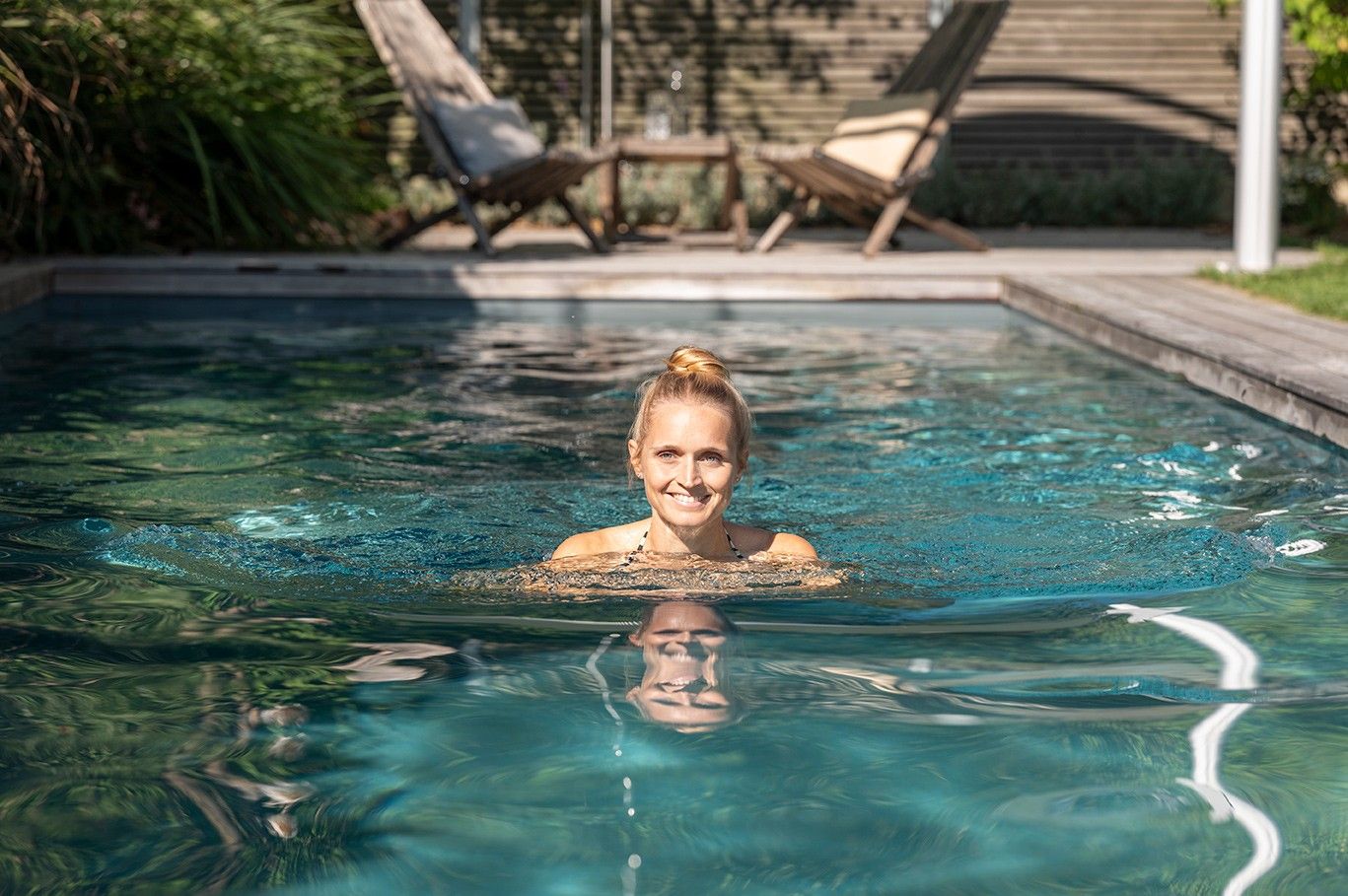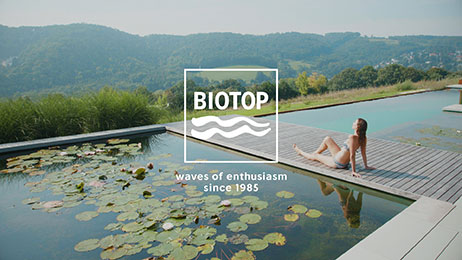News
Is a saltwater pool a natural pool?

There are many myths surrounding the advantages and disadvantages of natural, salt water and chlorine pools. Here is an overview of the most important questions:
1. Is a saltwater pool the same as a natural pool?
No, because the salt water system uses electrolysis to split the dissolved salt into free chlorine and sodium, thus disinfecting the water. Salt water pools therefore do use chlorine for chemical purification. However, the system uses a much lower concentration than classic chlorine pools because salt has a disinfecting effect.
2. Is salt water in the pool the same as natural seawater?
No, because firstly, the salt concentration is much lower, and secondly, environmentally toxic chlorine is used for cleaning in salt pools. Natural pools, on the other hand, rely on natural water, are easier to maintain, more environmentally friendly, conserve resources, are more energy-efficient and last longer than salt and chlorine pools. The natural purification of the water by bio/phosphate filters and microorganisms is also much healthier than chlorinated water, which often causes eye and skin irritation.
3. is a salt water pool cheaper than a natural pool?
In terms of construction, both natural and salt water pools are based on masonry liner pools or prefabricated pools. The Bio-Filter technology is more expensive to purchase than a salt electrolysis system. However, the investment soon pays for itself because neither expensive chemicals nor regular water changes are necessary.
4. Do all pool systems require the same amount of water?
Here is an example: An average-sized chlorine or salt water pool measuring 7 x 3 x 1.50 m has a volume of 31.5 m3 . In autumn, about two thirds of the chemically contaminated water is drained off and often ends up in the groundwater. The remaining pool water often turns green and is therefore pumped out in spring. With natural pools, on the other hand, you only have to refill about one third of the pool volume per season with water that is lost through evaporation or during cleaning. This means that natural pools and swimming ponds use water resources much more sparingly than chlorine and salt water pools.
5. Why a natural pool?
Why then are more and more customers opting for a natural pool or Swimming Pond? On the one hand, it is the unique experience of bathing in natural water without having to fear skin irritations or chlorine allergies. Owners of a Swimming Pond also appreciate the near-natural ambience and the year-round use. A pond also provides a valuable habitat for many amphibians and aquatic plants. More and more people are also paying attention to nature, to water as a resource and to sustainability.

